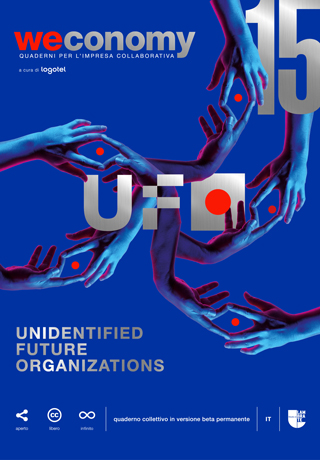Dear manager, your business can vanish
When the physical centre of gravity of organisations disappears, managers need to construct a new ‘glue’ for people.

When the physical centre of gravity of organisations disappears, managers need to construct a new ‘glue’ for people.

Beware, this organisation will self-destruct in 10…9…8…months. And it’s your fault.
Okay, now that I’ve got your attention – dear manager – let me explain why I’m very concerned about what I’m seeing out there. Things out there (in the sense of outside Microsoft Teams), are governed by power- ful and immutable laws such as Newton’s force of gravity, Max Pezzali’s ‘Friend Rule’, Maslow’s basic needs and more. Okay, old stuff you’ve heard many times before, but still important.
After March 2020, organisations spread out, losing their physical cen- tre of gravity, often replaced by cosmic nothingness While working towards business continuity, many businesses projected themselves into ‘let’s all go home’ – yay for remote working, we’ll manage! – believing that we just had to protect the most valuable asset, people. Months pass, and, after the emergency, now everyone is caught up in reframing post-Covid19 business projects and significant reorganisa- tions. While people are often still at home or prey to uncoordinated returns to the workplace. When it goes well, with the stop & go of smart working processes affected by a deadly mix of pandemic work pace and the (un)preparedness of leaders to govern people (and not business) in uncertain times.
Moral: the old organisational models failed to replace the ‘mass’ of physical workplace with a force of attraction capable of functioning in a hybrid universe. Corporate identity weakened, the vision blurred, the true rituals of culture construction and transmission were lost. New- comers to the company are getting older without having experienced the business. A dangerous form of disruption is underway: everyone is connected, but no one is in contact. eople feel less part of the project. They don’t know how to balance the needs of the ‘I’ – concrete and daily as the walls of your home – with those of the business, now me- diated only by online meetings, collaboration suites and group chats. And when you get back to the office, the concerns are about signs, traffic lights, and place booking apps. The most critical issue: how can we repopulate the worlds of work with real, new life, is at best just a proclamation. Companies lose mass that way. eople walk away, at best with their heads, at worst (but I don’t know which is better), resigning in search of better worlds.
Managers in charge of making sense, creating connections, bring- ing new working models to life, creating appointments (and not just deadlines) are few and far between, and sooner or later, they get tired, if not supported. Others are always present when there is a discussion about the logic of ‘what’ we can do (to ensure performance), but are not present when there is a discussion about ‘how’ to do something in a new way.
Okay, you’ll say, we’re planning for the future and thinking about new organisations. Rome wasn’t built in a day. True!
But beware: the speed with which old organisations de- teriorate is incredible. When you break the pact of trust between those who organise and those who work it’s hard to fix it. There’s no glue. Because organisations are made first and foremost of connections. They are what holds people together. Whether it’s a style, a vision, a method, a ritual, a song, a place, a culture. People are not organisations, but organisations consist of people.
How do we want to recreate the force of gravity that holds us together? How can we produce connections and relationships? How can we recharge exhausted workgroups with oxytocin and dopamine? Do it soon. Do it believing and with a beautiful spirit Our generation has the honour of participating in the challenge of reframing how we work. It’s a privilege, it’s a responsibility not to be wasted. Let’s do this. And as a Chinese proverb says ‘have fun, it’s later than you think’.

Published in Weconomy 15 – UFO. Unidentified future organizations
